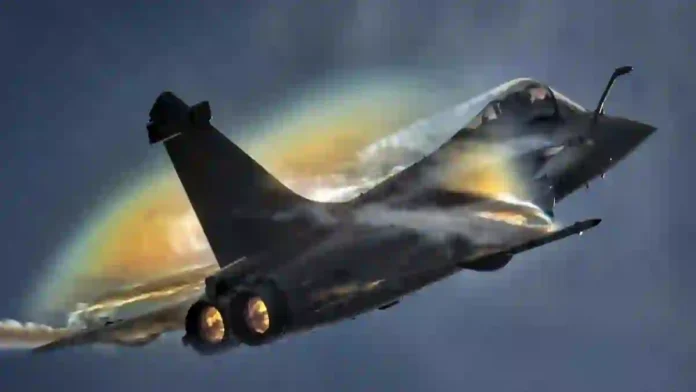France has publicly accused China and Pakistan of orchestrating a coordinated disinformation campaign targeting the reputation and international sales of its Rafale fighter jets, particularly following the India-Pakistan military conflict in May 2025 and India’s Operation Sindoor.
French military and intelligence officials, citing findings shared with the Associated Press, concluded that defence attachés in Chinese embassies led efforts to undermine Rafale sales, especially in countries that have already ordered the aircraft (such as Indonesia) and in potential new markets. The campaign reportedly sought to persuade these countries to reconsider their Rafale acquisitions in favour of Chinese-made jets.
Read- ‘We Fought Alone,’ Claims Pak Defence Minister After India Exposes China, Turkey’s Role In Conflict
This campaign was designed to undermine the reputation and sales of Rafale jets while promoting Chinese-made military aircraft as superior alternatives.
According to findings from a French intelligence service shared with the Associated Press, Chinese embassy defence attachés played a central role, actively lobbying countries that had already ordered Rafales—most notably Indonesia—not to purchase additional units and encouraging other prospective buyers to consider Chinese-made jets instead.
This diplomatic pressure was accompanied by a coordinated online disinformation effort, which included:
Viral social media posts questioning Rafale’s combat performance
Manipulated imagery purporting to show Rafale wreckage
AI-generated content and video-game simulations depicting alleged Rafale failures
The rapid creation of over 1,000 new social media accounts spreading narratives of Chinese technological superiority
Direct lobbying by Chinese embassy officials, who echoed these narratives in meetings with security and defence officials from other countries, promoting Chinese jets as superior alternatives.
Read- MoD’s Dilemma of Turban Jet Engine Options For TEJAS, AMCA; SAFRAN Proving Best Bet
Read- India Looks To Expedite Procurement of S-400 From Russia
The campaign’s timing coincided with Pakistan’s public claims of downing up to three Indian Rafales during the clashes, a claim that French and Indian officials have disputed as inaccurate. These claims, amplified by the disinformation campaign, prompted existing and potential Rafale customers to question the aircraft’s reliability and effectiveness.
France’s Defence Ministry described the campaign as a “vast campaign of disinformation” specifically targeting the Rafale because it is a high-profile, strategically significant export product for France. The ministry emphasized that the attack was not only on the aircraft itself but also on France’s broader image of strategic autonomy, industrial reliability, and international partnerships.
While French officials have not been able to directly link the online Rafale-bashing to the Chinese government, they have documented that Chinese embassy officials echoed these narratives in meetings with foreign defence and security officials. The lobbying and information operations were particularly focused on countries in Asia, where France is seeking to expand its defence ties and where China is simultaneously striving to establish itself as the dominant regional power.
China’s Ministry of National Defence has denied the allegations, calling them “pure groundless rumours and slander,” and insisting that China maintains a responsible approach to military exports.
French intelligence assesses that China used both diplomatic channels and coordinated online disinformation to damage the Rafale’s reputation and boost the appeal of Chinese-made fighter jets, with the broader strategic aim of weakening France’s defence relationships in Asia and promoting Chinese defence exports.
France alleges a deliberate, state-aligned campaign by China and Pakistan to damage the Rafale’s reputation and sales, using both online disinformation and diplomatic lobbying, particularly after the high-profile India-Pakistan conflict.
Based On AP Report
Agencies




